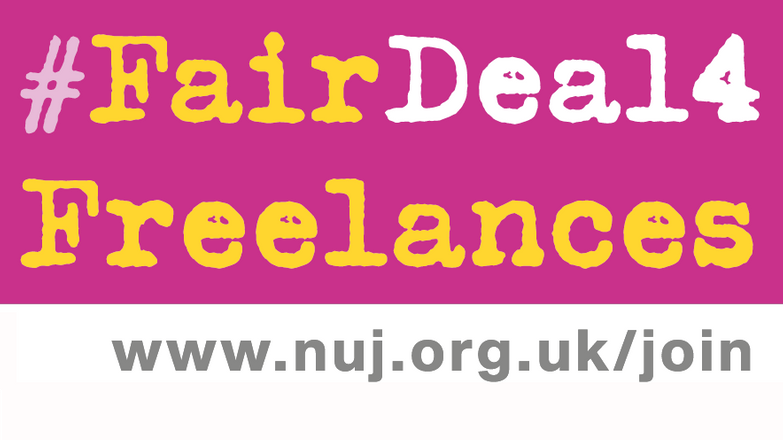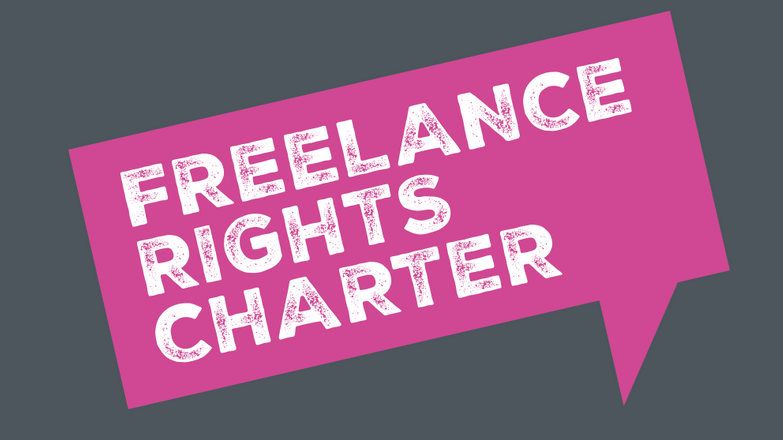TUC Women's conference: why we’re fighting for a fair deal for freelances
Michelle Stanistreet, NUJ general secretary, explains how Covid-19 has laid bare the precarious nature of self-employment – and how the union is pressing to defend vulnerable members.
Coronavirus does not discriminate when it chooses its victims, but the pandemic has shone a light on the health and social inequalities in society that have led to certain groups suffering more than others – with woman being especially severely affected.
The effect of Covid-19 on women and their work is a major theme of the TUC's Women's Conference.
A survey of National Union of Journalist members carried out at the end of 2020 and beginning of 2021 showed more than half have experienced mental-health concerns – suffering from stress and anxiety because of the virus, lockdowns and over losing work or income.
Juggling family life, home schooling and work, dealing with the challenges of being isolated or having to shield and grieving for lost loved ones have taken their toll, with 45 per cent saying they had problems coping.
It is women who have shouldered the lion's share of childcare and as carers of vulnerable family members.
A report by the McKinsey Global Institute, last summer, calculated women's jobs were 1.8 times more at risk in the crisis than men's jobs.
Women make up 39 per cent of global employment but accounted for 54 per cent of overall job losses.
Our survey showed many women who freelanced as media workers so they could combine work with caring responsibilities found their work dried up overnight.
Others have struggled to work from home, especially those with uncaring bosses who have failed to show flexibility and support.
One member who responded to our survey said: "My employer failed to appreciate family responsibilities and has not made any effort to accommodate home schooling or mitigate against my expected outputs or performance."
Another said: "It's very difficult to work full time and home school, especially with an unforgiving boss."
And: "I have been offered no support and was told to take annual leave or unpaid leave to cover childcare."
A good employer, with strong collective bargaining in place, makes all the difference: "We're just about juggling, but the BBC has been very supportive, allowing us to change hours and work slightly less," said one of the luckier members.
That is why the NUJ has supported calls by the TUC for a temporary legal right to access the furlough scheme for parents and those with caring responsibilities who have been significantly disrupted owing to coronavirus restrictions.
Obviously, it would be preferable if we had a proper system of paid parental leave and better flexible work rights, but in the mean time the furlough scheme is often a financial lifeline.
The TUC's research found a quarter of mothers worried they will lose their job, either through being singled out for redundancy, being sacked or denied hours.
The NUJ's motion to conference refers to the union's Fair Deal for Freelances campaign and the Freelance Charter launched during the pandemic.
Covid-19 laid bare the precarious position of the self-employed, particularly in the media, where a third of workers are freelance.
The charter calls for the right to organise in a trade union, to have a written contract with fair terms and conditions, prompt payment and equal treatment at work in terms of health and safety.
Freelances should get holiday pay, parental leave and allowances and a retirement pension.
They should have the right to resist companies forcing them on to PAYE, to incorporate as a limited company or work under umbrella companies.
It's really not much to ask, is it?
One of the real scandals of the pandemic has been the 2.9 million people identified by the National Audit Office who were not eligible for the Covid-19 aid schemes either because of ministerial decisions about where to focus support or because HM Revenue and Customs said it did not have data needed to properly guard against the risk of fraud.
Despite robust repeated and continuing lobbying of the Treasury, by us, other unions and the TUC, these people have been left high and dry and Rishi Sunak remains deaf to our entreaties on their behalf.
Our freelance members also fear for the future, with nearly a quarter saying they did not expect to make a living as they did before the pandemic.
That is why we have to act now to properly support the self-employed.
This article first appeared in the Morning Star

Fair Deal for Freelances
The NUJ's major campaign to fight for a better deal for freelances.

Freelance Charter
10-point charter for freelances rights and benefits.
